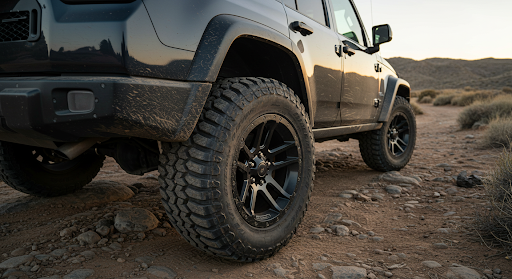
The Vehicle Infrastructure Integration Consortium (VIIC)[1], a consortium of most major global automakers, will join key government officials and other automakers from around the world to help accelerate the development of connected vehicles by harmonizing standards. In the U.S., there is a strong commitment to deployment of crash avoidance safety applications using connected vehicle technologies.
Globally harmonized standards will enable the automakers and other stakeholders to bring connected vehicle technologies to market more quickly and at a reduced cost for the consumer. The announcement comes as transportation innovators, leaders and officials participate in the premier event showcasing intelligent transportation, the 18th World Congress on Intelligent Transportation Systems in Orlando, Florida, Oct. 16-20.
Connected vehicle technologies are a key part of the Intelligent Transportation System (ITS) initiative in the U.S. and in other countries. They are expected to be the next frontier for enhancing motor vehicle safety. The technologies also could help reduce traffic congestion by amassing data from many connected vehicles to provide real-time traffic updates.
Connected vehicles using 5.9 GHz Dedicated Short Range Communication (DSRC) technology can “talk” cooperatively with each other and with the roadside infrastructure. These “conversations” can provide connected vehicles with information on other vehicles, intersections, road signs, etc. Vehicles can use this information to help warn drivers of imminent dangers and help them avoid potential crashes.
International industry technical standards harmonization is a key to accelerating the global deployment of this technology. An efficient, harmonized set of standards among various markets would enable manufacturers to offer these cooperative communication systems to consumers through a less complex global rollout and at a lower cost to the customer. The VIIC envisions a coordinated rollout of vehicle and infrastructure DSRC technology in the U.S., along with similar rollouts internationally.
Along with VIIC members, partners in the global standards harmonization effort include the International Organization of Motor Vehicle Manufacturers (OICA), the U.S. Department of Transportation (DOT), and the European Union (EU) and Japan governments, along with regional and global standards organizations. An automaker pre-competitive partnership, the Crash Avoidance Metrics Partnership – Vehicle Safety Communications (CAMP VSC3)[2], is providing a major part of the precompetitive technical standards research and development leadership in the U.S.
The commitment to global harmonization is a significant part of an EU-U.S. Joint Declaration of Intent on Research Cooperation in Cooperative Systems signed by government representatives in 2009. Working groups organized under the Joint Declaration have held regular meetings on harmonization of technical standards and related matters.
In July, an important first joint vehicle manufacturer/government workshop took place in Germany. Representatives from U.S., European and Japanese vehicle manufacturers met, along with government officials, to discuss cooperation on connected vehicle technology standards. Common goals and differences were identified, along with an agreed path forward for collaboration. The representatives agreed to an action plan, including looking at what messages and protocols potentially could be harmonized. Initial progress from that action plan will be reported at a meeting during this week’s ITS World Congress. Future events also are anticipated.
“The potential for vehicles to ‘talk’ to each other and the roadside to help prevent crashes and improve mobility represents an exciting opportunity,” said VIIC President Tom Schaffnit. “Work to harmonize related technical standards internationally can help support deployment of this technology here and in other countries.”
[1] The VIIC is a consortium of nine car and light truck manufacturers including BMW Group, Chrysler, Ford Motor Company, General Motors, Honda, Mercedes-Benz, Nissan, Toyota and Volkswagen. Its focus is on precompetitive policy development supporting connected vehicle deployment.
[2] The CAMP VSC3 is a consortium of eight car and light truck manufacturers including Ford Motor Company, General Motors, Honda, Hyundai/Kia, Mercedes-Benz, Nissan, Toyota and Volkswagen Group. Its focus is on precompetitive technical matters associated with connected vehicle deployment.









More Stories
Dürr and GROB concept battery factory uses 50% less production space
DuPont materials science advances next generation of EV batteries at The Battery Show
Cybord warns of dangers of the stability illusion